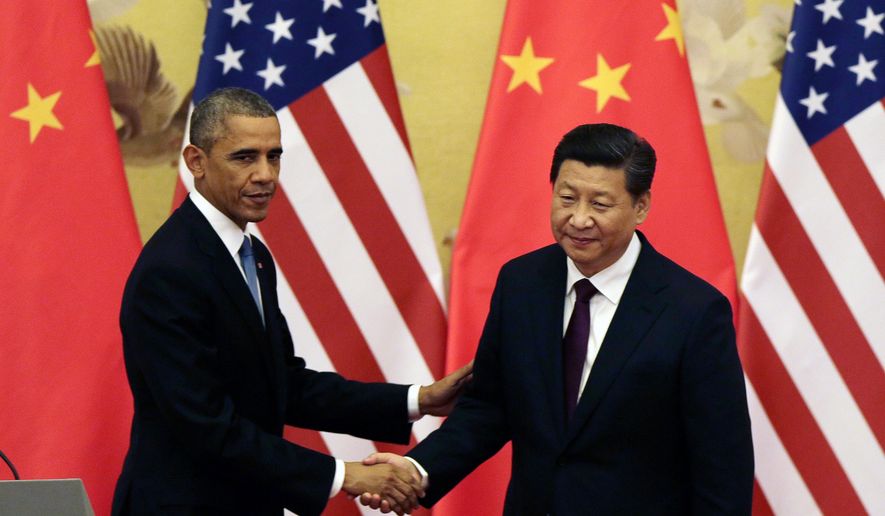A Republican member of the House of Representatives has raised concerns over a supposed cyber-pact between the United States and China amid reports that Beijing is unwilling to stop hacking American targets.
Rep. Matt Salmon of Arizona published an opinion piece in The Huffington Post on Monday evening questioning whether China is committed to keeping up its end of the bargain after promising to curb hack attacks against the U.S. following a meeting between President Obama and his Chinese counterpart in September.
Mr. Salmon, an acclaimed expert on China, said this week he’s skeptical of Mr. Obama’s claim that he and Chinese President Xi Jinping had reached “common understanding” regarding state-sponsored cyberattacks, especially following recent remarks out of Beijing concerning the need to protect “cyber sovereignty” and avoid having digital policies dictated from beyond its borders.
“While I welcome the consistent, high-level interaction between our two countries, we are neither closer to converging on agreed norms of behavior or the level of state involvement in cybersecurity, nor are we closer to doing anything about it,” Mr. Salmon wrote.
“The United States has repeatedly condemned Beijing’s proven malicious cyber activity, only to be met by Beijing’s resolute denials that any such activity occurred, let alone with the state’s backing,” he wrote. “Unsurprisingly, agreements such as the September 2015 bilateral agreement on cyber-enabled theft of economic information were crafted in a way to allow Beijing to use creative interpretation to weasel out of further reprimand from the United States.
“China’s extensively layered cyber administration and military and operational cyber infrastructure grants Beijing an easy way out of being held accountable for its actions. It places a greater onus on the United States to prove direct government culpability, though we should not let that deter us from continuing to report China’s cyberattacks against U.S. assets and organizations,” he wrote.
The Obama administration has routinely attributed state-sponsored hackers from China with cyberattacks against U.S. targets, including governments and corporations alike. The White House also largely blamed Beijing for an intrusion last year that compromised millions of sensitive Office of Personnel Management records.
U.S. intelligence has said Chinese cyber-criminals stole data from the computer systems of at least 600 American targets since the dawn of the Obama administration, and the Justice Department previously indicted five members of the People’s Liberation Army alleged to have broken into energy industry computers for the sake of waging cyber-espionage.
Although Mr. Xi and Mr. Obama agreed to curb cyberattacks against one another following last September’s summit in D.C., the Chinese president said at an event last month that “no country should pursue cyber hegemony, interfere in other countries’ internal affairs or engage in, connive at or support cyber activities that undermine other countries’ national security.”
Mr. Salmon told The Associated Press last year that he learned to speak Chinese while working as a Mormon missionary in Taiwan and has visited mainland China more than 40 times.
“I want to be seen as someone who wants to work with China, but I’m certainly not going to be an appeaser,” he said at the time. “I’m going to be blunt sometimes.”
• Andrew Blake can be reached at ablake@washingtontimes.com.




Please read our comment policy before commenting.